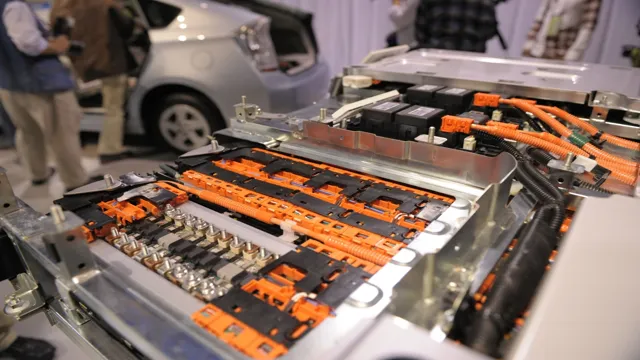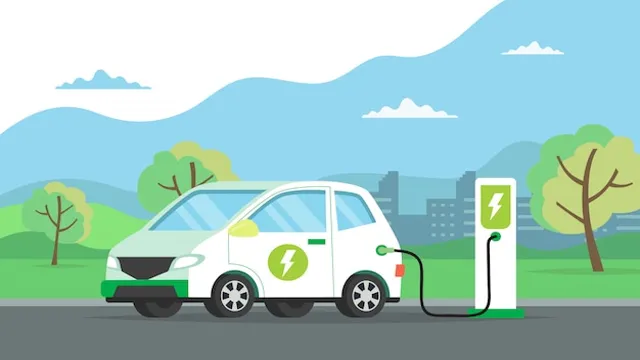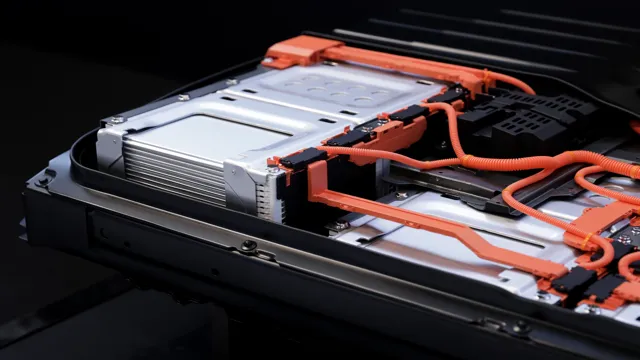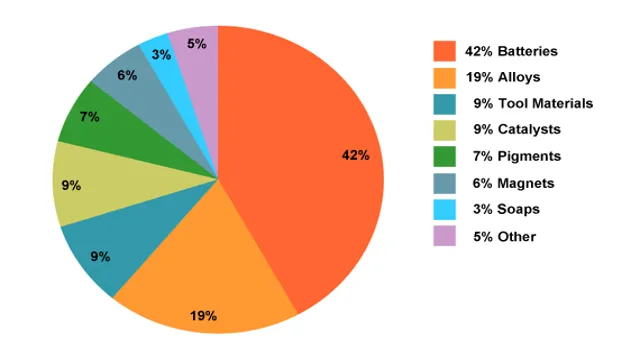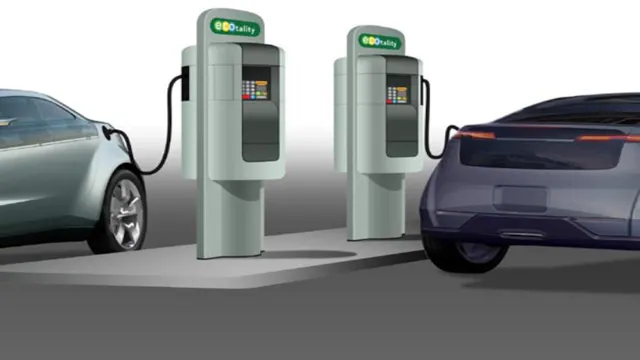Revolutionizing the Auto Industry: A Look at Electric Car Batteries – Lithium-Ion vs Lead-Acid
Electric car batteries have become a hot topic of discussion in the automotive industry due to their environmental advantages. But, the question remains: which type of battery is better for electric cars – lithium or lead? Both types have their pros and cons, and each one suits different driving needs. While lithium-ion batteries provide higher energy density and longer driving ranges, lead-acid batteries come at a lower cost and have a longer lifespan.
To make the right choice, it is essential to understand the differences between these two popular battery types and their impact on electric cars.
Introduction
When it comes to electric cars, one of the most important components is the battery. The two most common types of batteries used in electric cars are lithium and lead-acid batteries. But, which one is the better option? Well, it depends on what you’re looking for.
Lithium batteries are lighter, have higher energy density, and last longer than lead-acid batteries. On the other hand, lead-acid batteries are cheaper, more readily available, and easier to recycle. So, if you’re looking for a long-lasting battery that’s energy-dense and lightweight, then a lithium battery is the way to go.
But if you’re looking for a more affordable option that’s easy to find and recycle, then lead-acid batteries might be the better choice for you. Ultimately, it comes down to your specific needs and preferences.
The Pros and Cons of Lithium Batteries
Lithium batteries are commonly used in a variety of electronics, including cell phones, laptops, and electric vehicles. While they have become popular due to their high energy density and long lifespan, they also come with their own set of pros and cons. One of the main advantages of lithium batteries is their ability to hold more energy and last longer than traditional batteries.
They are also more environmentally friendly, as they contain fewer toxic materials. However, their high energy density also makes them vulnerable to overheating and combustion. In addition, lithium batteries can be expensive and difficult to recycle.
Overall, while lithium batteries offer many benefits, it is important to carefully consider the potential drawbacks before investing in them.
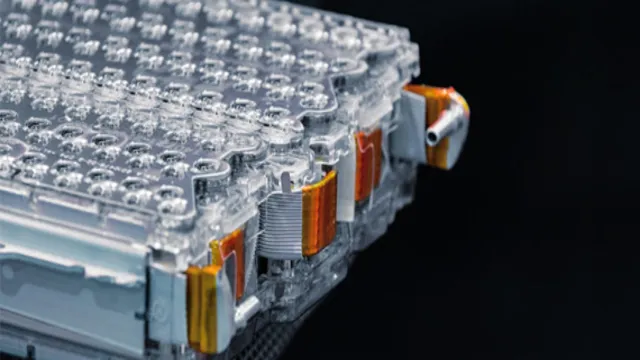
The Pros and Cons of Lead Batteries
Lead batteries have been around for over a century and are still widely used in various applications. While there are clear benefits to using lead-acid batteries, such as their low cost, reliability, and ease of maintenance, there are also some drawbacks. For instance, lead batteries are heavy and bulky, which limits their application in certain industries.
They also have a relatively short lifespan and require frequent maintenance to keep them functioning at optimal levels. Despite these drawbacks, lead batteries remain a popular choice because of their affordability and widespread availability. With proper care and maintenance, they can perform reliably for many years, making them a viable option for industries that require a cost-effective energy storage solution.
Comparing the Two
Choosing between electric car batteries can be a daunting task, especially when deciding between lithium and lead-acid options. Lithium batteries tend to be more energy-efficient, lightweight, and long-lasting, making them more expensive but ultimately more cost-effective over time. On the other hand, lead-acid batteries are generally less expensive upfront, but they require more maintenance and have a shorter lifespan.
So, if you’re looking for a more reliable and low-maintenance option, lead-acid batteries might be the better choice, but if you want to invest in a high-performance, long-lasting battery, go for the lithium option. Ultimately, it comes down to your specific needs and budget, but it’s important to consider all the factors before making a decision.
Cost Comparison
When it comes to choosing between two options, cost is often a big factor in decision making. The same is true when comparing two types of products or services. In the case of our comparison between traditional and virtual events, cost is certainly a key consideration.
Traditional events typically involve a lot of upfront costs like venue rental, catering, decorations, and travel expenses for attendees. These costs can quickly add up and make hosting events a pricey affair. On the other hand, virtual events are generally much more cost-effective due to the lack of physical space needed and the ability to reach a wider audience without the need for travel.
While there may still be some costs involved in equipment and technology, the overall cost savings of virtual events is significant. So, if you’re looking to host an event without breaking the bank, a virtual event may be the way to go.
Range Comparison
When it comes to comparing ranges, it ultimately comes down to what you need and what you’re willing to pay. The Range Rover has a higher starting price than the Land Rover Discovery, but it comes with more options for customization and luxury. The Range Rover also offers more engine power and a more spacious interior.
On the other hand, the Land Rover Discovery has a more approachable starting price and still offers plenty of features and capabilities. Its off-road performance is impressive, and it offers a comfortable ride for everyday use. Depending on your lifestyle and priorities, either one of these vehicles could be a great fit for you.
It all comes down to what you prioritize most in a vehicle. If you value luxury and customization, the Range Rover might be the better choice. If you want something more practical and approachable, the Land Rover Discovery might be right up your alley.
Environmental Impact Comparison
When it comes to environmental impact comparison, the two main types of products that are often pitted against each other are traditional and modern options. Traditional products are those that have been used for years, whereas modern products are new and innovative. Both have their own sets of pros and cons in terms of environmental impact, and it’s essential to weigh them carefully before making a decision.
Traditional products may be thought to be more environmentally friendly due to being made from organic materials and not produced using machinery. However, it’s important to remember that traditional products often require more water and energy during the production process than modern products. On the other hand, modern products may require more energy during their production process but typically last longer.
In the end, the best option is to find a balance between traditional and modern products that are both environmentally friendly and affordable.
Which One is Right for You?
When it comes to choosing an electric car battery, there are two main options to consider: lithium-ion and lead-acid. Lithium-ion batteries are popular for their high energy density, long lifespan, and faster charging times. They are also more expensive upfront.
On the other hand, lead-acid batteries are cheaper but have a shorter lifespan and slower charging times. Ultimately, the choice between the two will depend on your budget, driving needs, and overall priorities. If you have a higher budget and need a battery with a longer lifespan and faster charging time, then lithium-ion may be the way to go.
However, if you’re looking for a more affordable option and don’t mind slower charging times, then lead-acid might be the better choice. It’s important to do your research and consult with a professional to determine which option will work best for your specific situation.
Considerations for Choosing an Electric Car Battery
When choosing an electric car battery, there are several factors to consider. One of the most important considerations is the capacity of the battery. The capacity of the battery is measured in kilowatt-hours (kWh) and determines how much energy the battery can store.
Another important factor is the range of the battery, which is the distance the car can travel on a single charge. The type of battery chemistry used in the battery can also be an important consideration. Some types of batteries, such as lithium-ion batteries, are more efficient than others and can provide a longer range.
Other factors to consider include the cost of the battery, the size and weight of the battery, and the charging time. Ultimately, the right battery for you will depend on your specific needs and preferences. Whether you prioritize range, cost, or efficiency, there is an electric car battery out there that is right for you.
Final Thoughts
In conclusion, choosing between different options to achieve your goals can be a tough decision. Whether you’re looking for a light and portable laptop to take on-the-go or a powerful desktop for work or gaming, there are many factors to consider. Ask yourself what your priorities are, such as performance, mobility, battery life, display size, or budget.
Are you willing to trade off certain features for others? Ultimately, the choice comes down to your personal needs and preferences. It’s important to research the specs and read reviews from trusted sources to make an informed decision. Remember that there is no “one-size-fits-all” solution when it comes to laptops or desktops.
Both have their unique advantages and disadvantages, so it’s up to you to weigh them carefully and choose what best suits your lifestyle.
Conclusion
In the debate between electric car batteries, the clear winner is lithium-ion. While lead-acid batteries may have served us well in the past, they simply cannot compete with the energy density and efficiency of lithium-ion. So, if you want to get the most out of your electric car, make sure you choose lithium-ion.
Trust us, it’s the electrifying way to go.”
FAQs
What is the difference between an electric car battery and a traditional lead-acid car battery?
An electric car battery typically uses lithium-ion technology, which offers higher energy density and longer lifespan compared to a traditional lead-acid car battery.
How long does an electric car battery last?
The lifespan of an electric car battery varies depending on the make, model, and usage of the vehicle. In general, a well-maintained electric car battery can last up to 10 years or more.
How does the cost of a lithium-ion electric car battery compare to a lead-acid car battery?
While the upfront cost of a lithium-ion electric car battery is typically higher than a traditional lead-acid car battery, the longer lifespan and higher energy density can ultimately make it a more cost-effective option.
Can you replace a lithium-ion electric car battery with a lead-acid car battery?
It is not recommended to replace a lithium-ion electric car battery with a lead-acid car battery. Doing so can potentially damage the car’s electrical system and decrease performance. It is important to consult with a professional before making any changes to a car’s battery.

